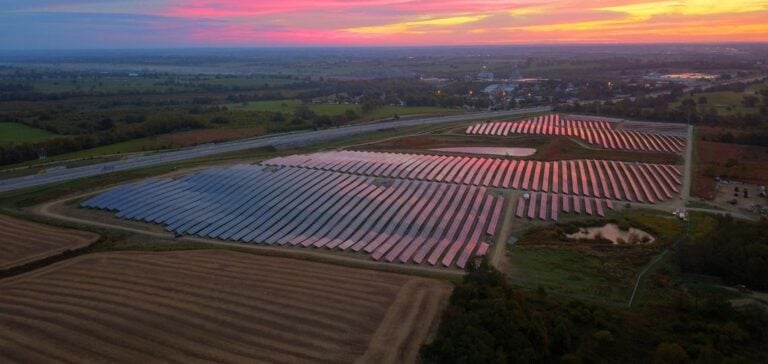Vesper Energy, a company specializing in renewable energy, announced the installation of over one million solar panels as part of its Hornet Solar project, located in Swisher County, Texas. Spanning more than 15 square kilometers, this project aims to deliver a total capacity of 600 megawatts of renewable energy (MWac) once operational, enough to power approximately 160,000 homes annually.
The Hornet Solar project, which plans for a total of 1.36 million panels, marks an important milestone in Vesper Energy’s ambition to contribute to the United States’ energy transition. “This milestone reflects the commitment of our team and our EPC partner, Blattner Energy, to realizing the transformative potential of Hornet Solar,” said Juan Suarez, Co-CEO of Vesper Energy.
Advanced technology to maximize efficiency
To optimize its performance, the Hornet Solar project uses bifacial photovoltaic modules mounted on a single-axis tracking system. This technology captures light from both sides of the panels, thereby increasing their overall energy production. The energy generated will be integrated into the electrical grid through Oncor Electric’s transmission system, operating in the region covered by ERCOT (Electric Reliability Council of Texas).
In addition to its positive environmental impact, the project ensures financial stability through long-term energy purchase agreements with four distinct partners. These Power Purchase Agreements (PPAs) secure the project’s profitability while ensuring a supply of green energy for consumers.
A respected timeline
The Hornet Solar project remains on schedule to reach full commercialization by the spring of 2025. This development strengthens Vesper Energy’s position as a key player in the U.S. solar energy sector. It also highlights the economic and environmental benefits of large renewable infrastructure projects, in a context where the demand for sustainable energy solutions continues to grow.






















